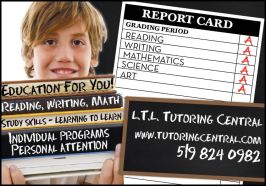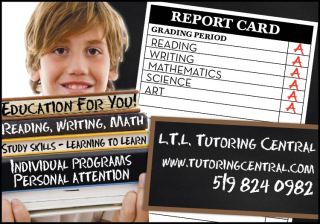Find a tutor
This sounds obvious enough. You can find lots of tutors online these days. Look for a tutor that will be a good fit for you or your child. When you find a potential candidate, check out his or her website, videos, blogs, etc. This will get you a feel for the tutor’s style. Of course, you want a tutor who has knowledge in your area of interest. However, finding a good fit goes beyond subject matter. You need to chat and make sure that the tutor’s personality and approach make you feel comfortable.
Get in touch
Allow time to chat with the tutor online. If you are going to sign up for online tutoring, you might as well practise “working” online. There are many excellent platforms that allow tutors, parents, and students to see and hear one another almost as if they are in the same room! Skype, Zoom, and BitPaper work really well. (All free to use!)
Be understanding and patient. You will want the tutor to schedule you at a time that works for you but also for him or her, so that nobody is rushed or unprepared for the chat. Every tutor is different, but I provide a minimum 30 minute free information meeting. (They are so much fun, we often run over.)
This is a perfect time to see how you can interact online through one or more of the programs that the tutor uses. For example, I show my potential clients that they can write, type, draw, share documents & videos, and share screens while we have our meeting. Of course, we can see each other through the cameras and talk just as if we were in the same room. It is truly amazing.
Small clip showing a tiny bit of the online abilities.
Ask away! 
Ask your prepared questions. Look for a tutor who is able to answer your questions to your satisfaction. A tutor who tells you exactly what he or she is able to do and what he or she is not able to do is far more valuable than one who simply “advertises.” Everyone has limits. Also, tutors cannot guarantee a specific improvement, although they can provide you with common results or even examples of stellar results that occur occasionally. Don’t forget to ask about how lessons are delivered? What times are available? How are the lessons packaged? Is there a minimum number of lessons required? What is the cancellation policy?
Not all ABC’s and 123’s
I have touched on this before. Learning is not only about the abc’s and the 123’s. You want an educational coach that can relate to the student and that can motivate, encourage, and help the student reach his or her goals. Of course, if you are looking for a writing tutor or reading tutor, you want someone knowledgeable in these areas, but he or she also needs to be able to speak well enough to engage the student. He or she needs to have a rapport and, in my opinion, a sense of humour.
Patience is essential. For over twenty years I have tutored all kinds of students and patience cannot be overrated. Everyone learns differently. A tutor needs to take the time to know the student and gear the teaching style and methods to the individual, focusing on using the student’s strengths to conquer his or her weaknesses and construct a more solid foundation.
Do you feel comfortable? 
Sign up. Commit to a number of lessons. Don’t be afraid to get started. It is often this step that “trips up” the process. Like anything new, it is a bit scary – but the rewards are amazing!
First lesson
Don’t be late! Try to make sure that you have the time correct – particularly if you and the tutor are in different time zones. (Of course, the tutor should aim to make this clear as well.) Please, respect the tutor’s time. Consistency is key for learning also, so try to make all scheduled lessons or reschedule within the same week if possible. The first lesson is exciting, but it can be frustrating, too. The technology is great, but it is not perfect. Allow for a few glitches and a little learning curve to get everything right. Smile. Enjoy. Your tutor will help walk you through any technical issues, but there is nothing wrong with you helping each other. The first lesson should leave you feeling comfortable, and it should provide a good start to your online tutoring experience.
Commit to the program
The first lesson is not the whole program! Don’t expect it to suffice. Be consistent by attending all lessons. Be prepared. If you are supposed to be doing something outside of the face-to-face lessons, make sure you have completed (or at least attempted) all tasks. Write down any questions, so you don’t forget them. Turn off or reduce all distractions. If the instructor is talking to you, the session should not be interrupted constantly by irrelevant texts, calls, or other open programs. Focus on the lesson. After all, that’s why you signed on!
Here is a recap:
1. Find a tutor – research
2. Get in touch – have an online meeting
3. Ask questions
4. Feel comfortable? Register for lessons (plan for a reasonable number)
5. Enjoy the first lesson – relax, get used to the technology
6. Commit to the program – be consistent & prepared
The best point of all is that you have options that never existed before. Take advantage of them.





 improving.
improving.



 Look for a tutor who won’t simply “plug-in” your child to a program designed for all. Learning is not the same for everyone, so the program for your child should not be identical to the one for thousands more!
Look for a tutor who won’t simply “plug-in” your child to a program designed for all. Learning is not the same for everyone, so the program for your child should not be identical to the one for thousands more!











